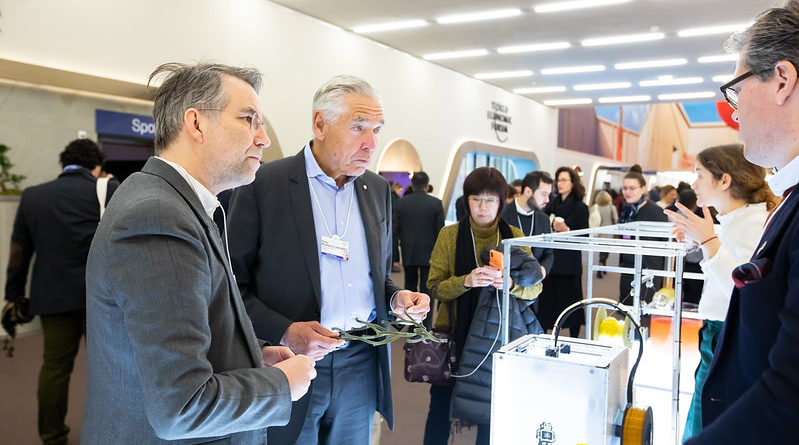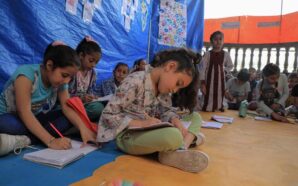Continual investment in new technology now required to be competitive has become a significant hurdle Pilot projects carried out across 130 SMEs in Brazil indicate that government could help SMEs unlock economic value and improve societal mobility if a new framework is applied Read the report here and for more information on the Annual Meeting 2020, click here.
January 21st, 2020 Geneva (Switzerland): Small and medium-sized enterprises (SMEs) are critical to the global economy but are losing ground in the Fourth Industrial Revolution. SME contribution to United States GDP fell nearly five percentage points from 1990 to 2014, the latest year. This trend should alarm policy-makers, particularly in emerging markets where smaller companies are the primary drivers of economic opportunity and social mobility, creating 90% of new jobs, according to the International Trade Centre.
To help SMEs keep up with the pace of technological change in the Fourth Industrial Revolution, the World Economic Forum today launched a new policy protocol: Accelerating the Impact of Industrial IoT in Small and Medium‑Sized Enterprises: A Protocol for Action. It details how policy-makers can deliver on a more inclusive Fourth Industrial Revolution and ensure that SMEs are not left behind.
The policy protocol identifies four areas that policy-makers can focus on and 14 “policy interventions” that can be implemented to boost the competitiveness of SMEs. The four main areas are knowledge creation, mentorship, space for collaboration and financial incentives. By focusing on these four main areas, businesses should be able to improve productivity while supporting job creation and social mobility.
More than 130 SMEs are piloting the framework across São Paulo’s automotive and aerospace manufacturing industries. The aim is to increase this number to 2,000 companies across the country by 2021. For six months, the World Economic Forum, Ministry of Economy of Brazil and the Brazilian State of São Paulo partnered to develop this potential solution.
“The Fourth Industrial Revolution is racing past the SME engine that drives over half the global economy, but if we act now it is not too late to bring them up to speed,” said Geoffrey Wylde, Lead for IoT, Robotics and Smart Cities at the World Economic Forum. “Countries in Africa, Asia and the Americas have expressed interest in this protocol and we believe this represents a turning point. Hopefully, the work by the Forum and our Brazilian partners will help policy-makers worldwide deliver on the promise of a more inclusive Fourth Industrial Revolution.”
“Developing countries can accelerate their growth by creating the appropriate business environment to foster the adoption of new technologies,” said Carlos Alexandre Da Costa, Deputy Minister of Productivity, Employment and Competitiveness of the Ministry of the Economy of Brazil. “The Fourth Industrial Revolution is one of these leapfrogging moments for our countries, and for SMEs in particular, that represents a clear challenge for our governments. One of our key priorities is to develop positive, replicable, adoption experiences for SMEs, through pilots, test labs and testbeds. This is a key factor for widespread modernization of our businesses, fast growth and productivity enhancement.”
The findings and recommendations in the policy protocol are applicable well beyond Brazil’s borders, so the tools from the pilot programme will be available to the Forum’s global community. The World Economic Forum encourages policy-makers and industry stakeholders to experiment with the policy protocol and share their findings with the Forum’s network. By working together, this global community can empower SMEs to lead the way on more economic productivity and inclusivity.
About the Annual Meeting 2020:
The World Economic Forum Annual Meeting 2020 will take place on 21-24 January 2020 in Davos-Klosters, Switzerland. The meeting brings together more than 3,000 global leaders from politics, government, civil society, academia, the arts and culture as well as the media. Convening under the theme, Stakeholders for a Cohesive and Sustainable World, participants will focus on defining new models for building sustainable and inclusive societies in a plurilateral world. For further information, please click here.
More about the Centre for the Fourth Industrial Revolution Network here.
Image Credits: Impressions from the World Economic Forum Annual Meeting 2020 in Davos-Klosters, Switzerland, 21 January. Copyright by World Economic Forum / Ciaran McCrickard











